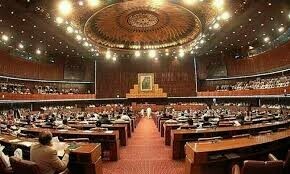PARIS: Nelson Mandela spoke for much of the world when he praised Yasser Arafat in the preface of a biography as a leader who "transformed the Palestinians' status from that of refugees to that of a nation in the most complete sense of the term."
Palestinians are still far from a nation of their own but Arafat has certainly taken them within sight of it.
"The Palestinian who disappears today has been subject to all acclamations and criticisms, but for me he remains the hero that never abdicated when the most essential objective was at stake: that of guiding our people into the international scene, that of leading our people out of the forced black hole into which our enemies wished we would disappear," Palestinian writer and director of the Revue d'études Palestiniennes (Review of Palestinian Studies) institute Elias Sanbar wrote in the French newspaper Le Monde.
Arafat, in reality Mohammad Abdel Raouf al-Qoudwa al-Husseini, was born in Cairo in 1929 and became member of the Palestinian liberation movement in April 1948 when he was studying engineering at the university of Cairo.
The Israeli journalist Amnon Kapeliouk wrote in his biography of Arafat titled 'Arafat l'irreductible' ('Arafat the maverick'), that two events that year moved Arafat to join the Palestinian liberation movement.
"On April 7, Abd al Kader al-Husseini, leader of the Palestinian forces of holy Jihad, was killed near Jerusalem," Kapeliouk wrote. "Two days later, the terrible massacre of Deir Yassin took place. The terrorist Jewish organizations Stern and Irgoun killed 250 Palestinians - men, women, and children."
Arafat immediately joined the Palestinian liberation forces. Together with his close friend Hamed Abou Sitta, Arafat symbolically burnt his books. He never gave up the struggle he took up.
After the Israeli victory in the six-day war in 1967 Arafat founded Fatah, which became the heart of the PLO.
In 1988 Arafat announced publicly that the PLO was ready to make peace with Israel. At the UN General Assembly that year he said he came with an olive branch, symbol of peace, and a fusil, symbol of the struggle for a sovereign Palestinian state.. "Don't let me throw the olive branch away," he told the UN General Assembly.
Five years later Arafat signed the Oslo agreements with former Israeli prime minister Yitzhak Rabin. He returned to Palestine in July 1994 after more than 20 years in exile, much of it in Tunis.
Rabin and Arafat both received the Nobel Peace Prize for their efforts to reach a peace agreement between Israel and Palestine.
But the assassination of Rabin in November 1995 by Israeli extremist Yigal Amir ended the peace process. The Israeli leaders who followed resumed construction of settlements in the occupied Palestinian territories.
Robert Malley, who was special assistant for Arab-Israeli affairs to former US president Bill Clinton wrote in a recent analysis of the failure of the Israeli-Palestinian peace process that "West Bank settlements grew swiftly and Israel continued to expropriate Palestinian land. Through an assortment of economic, political, and military measures, Israel maintained tight control over Palestinian lives. By the date negotiations over the final status were expected to be completed, they hadn't even begun."
When former Israeli prime minister Ehud Barak and Arafat met to resume talks in 2000, "Israel had yet to conclude its scheduled redeployments and still held roughly 30 per cent of Gaza and just under 60 percent of the West Bank," Malley wrote.
Practically all Israeli leaders after Rabin - with the clear support of US authorities, condemned Arafat as the main obstacle to peace. This continued as Arafat lay dying in Paris.
Israeli writer Elie Wiesel, himself a Nobel Peace Prize winner in 1986, said Nov 5 that "Arafat was the biggest obstacle to peace between Israel and the Palestinians." Arafat's death would mark "the beginning of a new era of hope for the Middle East."
Since both Israeli and US leaders said Arafat was an obstacle to peace, both will now have to revise their strategy. Either they must find a new excuse for continuing to block the emergence of a Palestinian state, or they begin true negotiations with Arafat's heirs.-Dawn/The InterPress News Service.













































Dear visitor, the comments section is undergoing an overhaul and will return soon.